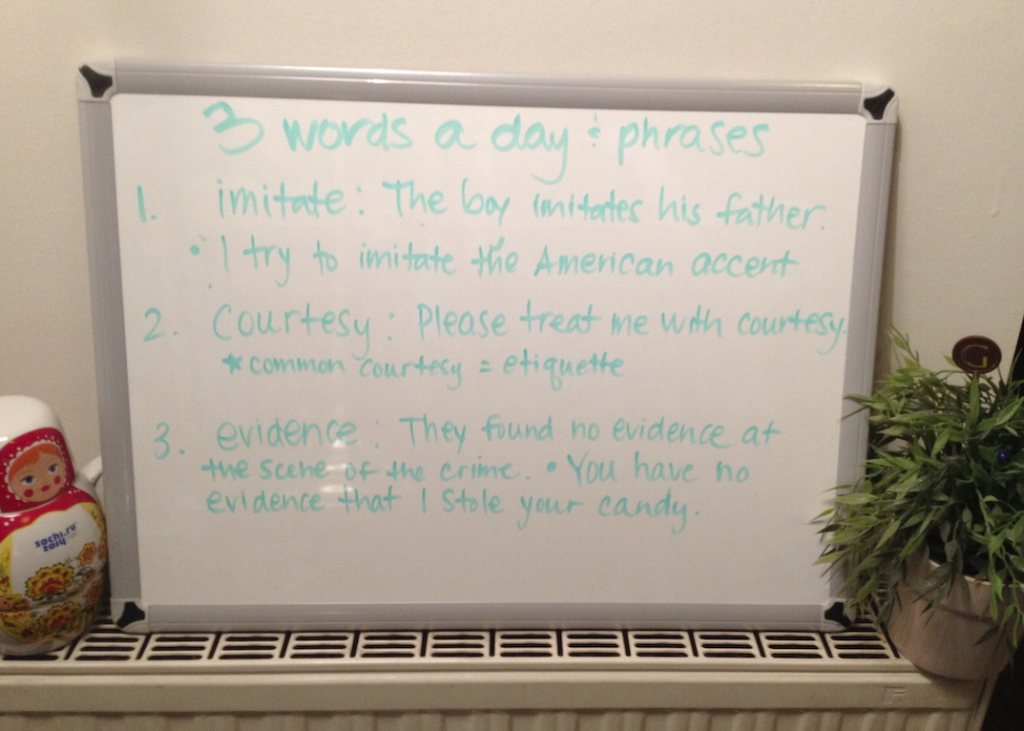Using a whiteboard to improve your English
I’ve said it once, I’ve said it a thousand times… Surround yourself with English! How about on the walls of your home!?!
Invest in a small whiteboard (or a big one!) and use it everyday to write down new vocabulary words to improve your English. Everyone has a different style of learning and remembering new words, so do what is right for you. Here are some suggestions:
- The definition
- If you are at a high enough level, write the definition in English.
- If you still need the help, use your native language– but try to use that the least amount possible.
- Sentences using the new words
- Anyone can memorize a word, but to actually be able to use it correctly is another story.
- Look it up and take note of the sentence structure used in example sentence and BAM! you get a grammar lesson as well.
- Common phrases or idioms that involve the word
- You want to speak as natural as possible, so do a bit of research and see how the word is used in “real-life”.
- Pictures
- Have fun and draw something to help you remember the word.
- Questions you think of and want to ask your teacher later on
This method is a great way to bring that passive vocabulary to active. The small amount of time you spend writing the word and the sentences… that alone is going to help you to remember it, not to mention all of the times you will see it in the day. Subscribe to a word of the day service and constantly be on the lookout for words to add to your board. (click below)


